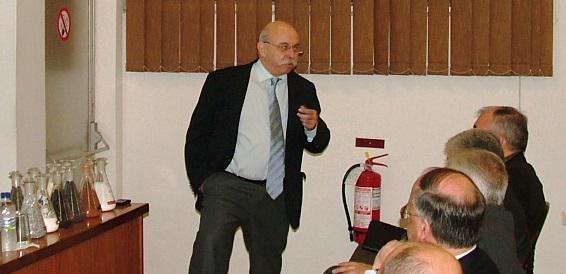The absence of fair competition in the electricity market, at a production level, will also deprive the market of true competition at a retail level, Dinos Benroubi, the chief official at independent electricity supplier Protergia, stressed last night during a roundtable discussion titled the Impact of Fluctuating Oil and Energy Prices on the National Economy, organized by the Greek Energy Forum, an international thinktank.
Benroubi, who noted that annual electricity costs for the country’s household and industrial sectors amount to 6.5 billion euros, also addressed the hefty grid-connection costs faced by Greece’s electricity consumers.
The Protergia official asserted that only half the electricity bill amount paid by consumers concerns production costs. Transmission and distribution costs represent another part of the overall cost, while about a third concerns other surcharges, Benroubi remarked.
The public service compensation (YKO) surcharge added to electricity bills, an amount paid by mainlanders in order to equate electricity costs for the country’s islanders, as Benroubi explained, needs to be resolved through the interconnection of the Greek islands with the mainland, he highlighted.
Though the benefits promised by this interconnection would cover its investment cost in no more than three years, development of its two sub-projects, concerning the Cyclades and Crete, is being severely delayed, Benroubi noted.
The Protergia head also stressed that Greece needs to focus on pursuing EU goals concerning decarbonization, RES targets, energy efficiency, energy storage and a trend towards presuming [electricity production by electricity consumers through PV generation, etc]. Instead, Benroubi added, the focus is on maintaining a state-controlled monopoly holding an 87 percent share of the retail electricity market and battling to regain lost ground, Benroubi added, referring to the main power utility PPC.





